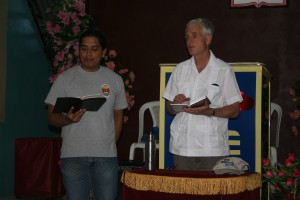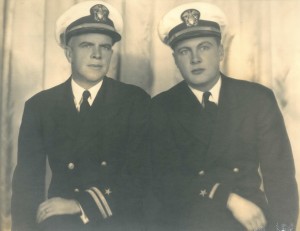 Have you ever been alone in a strange place without family or friends? Do you remember how it felt? This lesson is one of the hardest for contemporary, Western Christians to grasp. We were never intended to be alone as Christians. We were meant to be a family. We were meant to live in community with other Christians, sharing our successes, our failures, our hopes and dreams, our dashed hopes and dreams, our worries and and our cares.
Have you ever been alone in a strange place without family or friends? Do you remember how it felt? This lesson is one of the hardest for contemporary, Western Christians to grasp. We were never intended to be alone as Christians. We were meant to be a family. We were meant to live in community with other Christians, sharing our successes, our failures, our hopes and dreams, our dashed hopes and dreams, our worries and and our cares.
The Bible uses many metaphors for the church. The Church is Body of Christ; it is the City of God; it is the People of God; it is the Family of God. We began our study of everyday discipleship noting that, when Jesus came to be among the human race to display for us the wisdom and love of God in human form, he did not do it alone. He did not primarily rely on mass preaching events, though he preached to crowds. In the end, he chose a group of disciples, followers, and poured his life into them. He created a community of disciples. When he ascended into heaven, that little discipleship group became the church. A fundamental principle of this study is that believers, and especially new believers, need to be in a discipleship group. They need the experience of growing in Christ in an intimate fellowship of other people who are trying to grow in Christ as well.
Commitment to Discipleship
 In the ancient world, a disciple was a learner, someone who followed a teacher around and learns from them. The process of learning was twofold: First, the disciple learned the information that teacher knew. Second, the disciple came to model the lifestyle of his teacher. For example, Plato, a disciple of Socrates later taught his disciples, one of which was Aristotle. In this way, the teachings of the master were passed down. Our Salt & Light study tries to recover this ancient way of teaching people and changing lives. It is very important to remember that we are not called merely to transmit information to people. We are called to help them live a new kind of life as a disciple of Jesus.
In the ancient world, a disciple was a learner, someone who followed a teacher around and learns from them. The process of learning was twofold: First, the disciple learned the information that teacher knew. Second, the disciple came to model the lifestyle of his teacher. For example, Plato, a disciple of Socrates later taught his disciples, one of which was Aristotle. In this way, the teachings of the master were passed down. Our Salt & Light study tries to recover this ancient way of teaching people and changing lives. It is very important to remember that we are not called merely to transmit information to people. We are called to help them live a new kind of life as a disciple of Jesus.
All our married life, Kathy and I have been members of what we call “discipling groups.” We met in a Bible study. When we were a young couple, we were in Bible studies with other couples. Each of us has been a part of small discipling groups with men and women separately over the years. When Chris worked, he had a small group in his law office. When we went to seminary, Chris met weekly with a group of fellow students. Since entering full-time ministry, both of us have always been part of discipling groups.
Some years ago, we became part of a renewal movement that encourages the formation of small discipling groups, and over the years we have been members of such small groups. We’ve led T4T and other discipling groups in our home and at church. We’ve always been members of Sunday School and other discipling classes. We’ve attended special groups to learn special skills such as child raising or how to manage our money. Each one of these groups changed our lives in some important way. Along the way, we’ve grown, helped others, made many life long friends, and experienced the joy of Christ.
Just as Jesus was lifted up into heaven, most of these groups disbanded as people moved along in life, but each person in each group remains a precious memory. I meet with several men weekly. We’ve been meeting for over about fifteen years. For many years, I have taught a year long Bible Study. Those groups meet for nine months. Often, our church sponsors short-term groups that meet for six or so weeks. The size and length of the group is not what matters. It is the love of the group that matters.
Just last evening, we met a couple for an outing that we’ve known for over thirty years. Chris has known the husband for a bit longer. We’ve never attended the same church. In fact, we belong to different denominations. However, when we were young, for just a few weeks we had a weekly Bible Study in our home. Recently, we had the opportunity to share some time together. The deep love that was created years ago emerges every time we are together. The day before, a couple dropped by our house with their grandchildren. Once again, we met in a discipling group many, many years ago. Today, we are still Christian friends, helping one another grow and face the new challenges of a new stage of life. The love of discipling groups is a kind of love that never ends because it was not primarily a human love but a divine encounter.
Personal Relationships are Essential
When we become a Christian, one of the most important things for us to do is to become part of a local church. As mentioned last week, we need to be in a place where we can worship God in community, hear the Gospel preached and taught, pray and with others and serve God as part of a local congregation. In fact, we cannot really grow as disciples, reach out effectively as disciples, or use the gifts God has given us unless we are part of a local fellowship of believers. The local church is the basic unit of Christian discipleship.
As Christians, we celebrate a God who exists in a transforming relationship. God not only reveals himself to us as Father, Son and Holy Spirit, in some mysterious way, God exists as one essential being in three distinct persons.  These persons exist in an unbroken relationship with one another in the perfect love of the Godhead. In other words, God exists in a community. This has profound implications for the Christian life:
These persons exist in an unbroken relationship with one another in the perfect love of the Godhead. In other words, God exists in a community. This has profound implications for the Christian life:
- If God exists in a relationship of love, then there is no being a Christian without being in a relationship of love. As persons who are made in the image of God (Genesis 1:26-27), we were made for deep, loving, wise, and powerful life changing relationships – with God, with other persons and with creation.
- The church is to be made up of people who are in relationship with one another. A church that is merely a place for so inclined people to meet on Sunday morning sit in pews, sing and listen to a talk, is not the kind of church God God meant the church to be a place where people are in relationship with God and with one another. A church is not a worship service. A church is a group of disciples called to live together and demonstrate to the world God’s love.
- Since God is love, and the same love he showed when he “sent his only son” (John 3:16) exists between the Father, the Son and the Holy Spirit, it is only as we exist in communities of love that the Church can be the body of Christ it was intended to be. This love is not a love based upon attractiveness, or other human qualities or worthiness. It is a pure self-giving love, which Jesus demonstrated for us on the cross.
- Finally, the very names of the divine person: Father, Son and Holy Spirit encourage us to see God existing as a family. This is exactly the relationship Jesus claims and models with his disciples. When Jesus says that he desires the disciples to be one just as the Father and he are one (John 17:20-21), he is praying that we might enter the family of God and become participants in the self-giving love of God. In other words, he is making us part of his family. When John calls believers, “Children of God” (I john 3:1), he indicates that by faith in Christ and participation in his body, reflecting the love of God in our lives and in our life together, we become part of God’s family.
Jesus: Our Model
Jesus was the greatest and most productive discipleship group leader in the history of the world. He called twelve average people. He saw their potential. He trained them. He lived with them. He loved them. Then, he set them loose to change the world. How did he do this? Here are some concrete things he did:
- He called the group into being (See Mark 1:17).
- He shared his life with them (the entire Gospel).
- He prayed for them (John 17:6ff).
- He taught them (Mark 1:21).
- He loved them (John 13:39).
- He rebuked them (Mark 9:36-39).
- He allowed them to lead (Mark 6:6-7).
- He gave his life for them (Mark 10:45).
In all of this, one fact stands out: Relationships were central to Jesus. His mission was conducted in and through relationships with people. It is how Jesus conducted the most central part of his ministry: getting a small group of men and women ready for the day when they would be leading others to faith in God the Father, who Jesus called “Abba” or “Dad,” by the power of the Holy Spirit. The life Jesus lived with his disciples was that of a family. This is not surprising, since the disciples were being called to become part of the family of God.
Jesus lived as part of a discipleship group with the Twelve and others who learned to be a part of God’s family and walk in the Way of Christ through their life together. It follows that every Christian should have a similar life transforming experience. Small groups of believers call people into relationship with Christ, allow people to share their Christian walk, deepen the prayer life of their members. These small groups are a source of Christian teaching, become places of loving care, are a source of guidance in difficult times, and a source of new leadership for a growing fellowship of Christians.
Becoming a Part of the Family of God
God’s intention from the beginning was to create a special people, his family, which would bless the entire world. God called Abraham for just this purpose (Genesis 12:1-4). In Genesis, God calls Abraham to bless not just himself, but his family, and even the entire world (Genesis 12:1-3). The history of Israel is really the history of God’s dealings with this one family. He wanted Israel to be a kind of prototype for what all families and all nations should be like. Even once Israel becomes a nation, one of the most common images the Bible uses for them is “The Sons of Israel”—a family. God’s family, however, was called to be different than the other peoples around them. They were to be holy just as God is holy (Leviticus 19:2). The word “holy” means “separated” or “different.” The way in which God’s people were to be different is that they were to show forth the wisdom, goodness, and love of God in a special way, so that the entire world might come into fellowship with the God of Love.
The Apostle Peter put it this way:
But you are a chosen people, a royal priesthood, a holy nation, God’s special possession, that you may declare the praises of him who called you out of darkness into his wonderful light. Once you were not a people, but now you are the people of God; once you had not received mercy, but now you have received mercy (I Peter 2:9-10).
Those of us who have been called to be disciples are called to be a special, set apart people, called to declare to the world the mercy and love of God.
The book of Acts begins with Jesus saying goodbye to his disciples. The first discipleship group was disbanded when Jesus ascended into heaven. No longer would they be meeting together daily, physically in the presence of the Word Made Flesh. Instead, Jesus was going to be with the disciples as they shared the Good News throughout the world by the invisible power of the Holy Spirit. He asked them to return to the city and await the coming of the Spirit (Acts 1:8). They went back into the city, met together in the Upper Room as a group, and planned for the future until the day of Pentecost (Acts 1:12-25).
On the day of Pentecost, the promised Holy Spirit came upon the church, and the disciples were filled with its powerful presence (Acts 2:1-4). They began to share the Good News with all those gathered in Jerusalem that day, and by the end of the day, about 3000 people were saved (Acts 2:5-41). What did they do next? They met as a small group! The apostles discipled a new group of believers in Jesus just as Jesus discipled them! Here is how Acts describes it:
They devoted themselves to the apostles’ teaching and to the fellowship, to the breaking of bread and to prayer. Everyone was filled with awe, and many wonders and miraculous signs were done by the apostles. All the believers were together and had everything in common. Selling their possessions and goods, they gave to anyone as he had need. Every day they continued to meet together in the temple courts. They broke bread in their homes and ate together with glad and sincere hearts, praising God and enjoying the favour of all the people. And the Lord added to their number daily those who were being saved (Acts 2:42-47).
The early church was like a family, intimately sharing their life together. They shared meals . They kept a common purse for expenses of the group. They contributed to the needs of the group. They worshiped, learned, and prayed together. God called us into a family, and God desires that we share our lives like a family.
This is hard to do in our society. We are so individualistic that we have difficulty maintaining physical families, much less a church family. We are so busy that it is hard to find time to share our lives with others. We are so consumed emotionally by the needs of family, career, social life, and the like that making time for deep relationships is not easy. Nevertheless, this is exactly what God has asked us to do.
Discipleship Groups
 The passage we from Acts we read a moment ago gives a complete description of what a discipleship group entails. We need to think about the description of what the church should be like, so we can disciple people in ways that mirror the way Jesus discipled people. A discipleship group is a personal, face-to-face gathering of men and women who are committed to meet regularly in order to grow as disciples of Jesus Christ.
The passage we from Acts we read a moment ago gives a complete description of what a discipleship group entails. We need to think about the description of what the church should be like, so we can disciple people in ways that mirror the way Jesus discipled people. A discipleship group is a personal, face-to-face gathering of men and women who are committed to meet regularly in order to grow as disciples of Jesus Christ.
Each aspect is important considering the scriptural model given to us in Acts 2:42-47:
A discipleship group is Intentional: “they devoted themselves to the apostles teaching.” The apostles and the new believers intentionally committed themselves to grow as disciples by listening to the apostles teach. We will not grow as disciples unless we are willing to intentionally become batter disciples.
A discipleship Group is Personal: “all believers were together.” Fellowship is not an optional part of the Christian life. It is central. God desires us to become part of a community of believers who are sharing their lives and their faith together. God wants us to be in a personal, close relationship with others in his community.
A discipleship group meets Regularly: “daily.” A discipleship group meets once a week, every other week, or once a month, or on some other regular basis. Frankly, for most of us in our culture, a daily meeting is impossible except perhaps in our family or with one or two other people we normally see in our daily lives. Groups that meet monthly are normally unable to produce change. For most Christians, a weekly group is what is needed.
A discipleship group meets to Learn: “to the apostles teaching.” A discipleship group is made up of people who desire to grow in the knowledge, imitation and reverence for Christ. It is not a social gathering. Although the Christian faith is more than learning information, it is impossible to grow as a Christian disciple without learning information.
A discipleship group is committed to Exciting Fellowship: “Everyone was filled with awe.” Christian fellowship is life giving, exciting and life changing. If people in our culture are to be filled with awe, then we must show the wisdom and love of God by the lives we lead and by the community of love we create.
A discipleship group intends to Grow: “and the Lord added to their number those who were being saved.” The purpose of a discipleship group is to grow the kingdom of God by growing disciples. Many small groups in our culture exist primarily for group members. A true discipleship group exists not only for current members but for future disciples of Christ.
The Holy Spirit: Our Source of Real Community
Discipleship groups are more than a program. These groups are a God-given opportunity for disciples to live the kind of life God intended for all human beings. Once we understand this, we understand human ingenuity is not sufficient for true discipling community. Only the Holy Spirit can create a community that models God’s wisdom and love in the midst of a fallen, broken, and diseased world. Only the Holy Spirit can help us live out lives of true agape love toward others. The Holy Spirit transmits to us the love of God in several ways:
Knowledge. It is the Holy Spirit that allows us to understand who God is and what God is like.
Fellowship. It is the Holy Spirit that draws us into fellowship with God by faith in Christ.
Church. It is the Holy Spirit who creates the church and draws us into relationship with others.
Where Real Community Grows
The church is a place where we can grow and be nurtured in our faith. In an individualistic society, it is hard, very hard, to remember that we are called to give up a bit of ourselves for something that will transform our lives. When we give up a few hours on Sunday, and perhaps a couple of more hours in a week, to grow in fellowship with others, we receive blessings we might never have received by getting a raise, or a new dress, or a point or two off our handicap. We receive the blessing of community, real loving community. As we grow in that community of love, our families, our neighborhoods, our businesses, our cities, even our nation and world can be changed. God’s love, God’s wisdom, God’s peace are all created and shared in little communities of love.
Copyright 2015, Chris & Kathy Scruggs, All Rights Reserved
We are spending a bit of our summer working on a series of lessons for our church. We invite comments. We read them all and all are included in subsequent drafts, one way or the other. God bless you all!





































